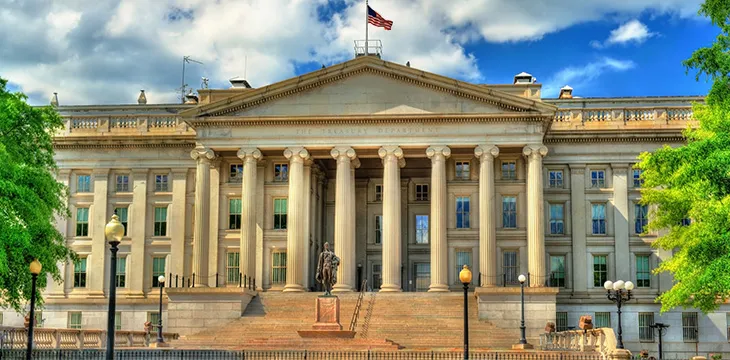|
Getting your Trinity Audio player ready...
|
The U.S. Treasury department will work in collaboration with the Internal Revenue Service (IRS) in regulating cryptocurrency exchanges in the country.
According to statements made at a Senate Committee hearing this week from a senior official at the department, anti-money laundering regulations will be stepped up as part of efforts to clamp down on criminal uses of cryptocurrency.
Notably, the treasury official spoke of the need for implementing the new “due diligence” rules, which all “financial institutions”—including cryptocurrency exchanges—will be expected to uphold from May 2018.
Sigal Mandelker, undersecretary for Terrorism and Financial Intelligence, said the new rules mean cryptocurrency exchanges will need to work with investigators from the Financial Crimes Enforcement Network to prevent criminal uses of cryptocurrency.
“To ensure that virtual currency providers and exchangers know the rules and follow them, FinCEN has prioritized engagement with – and examination of – these entities, focusing both on the approximately 100 that have registered with FinCEN as money transmitters as required, as well as those that have not,” she said.
Mandelker further highlighted the links between the department and officials at the IRS, with both organizations issuing joint guidance for companies likely to be affected by the new rules, as well as working side by side in enforcement.
Madelker also suggested work was ongoing between U.S. authorities and international partners, with a view to establishing common regulatory ground for regulating digital assets like SegWit1x (BTC), Bitcoin Cash (BCH), and ether.
The announcement comes at the same time as efforts are underway elsewhere to tighten regulations and provide a solid legal framework for cryptocurrencies. The European Union is among the countries and regulators around the world drafting tighter laws governing cryptocurrencies and terrorism financing.
The Treasury Department’s Financial Crimes Enforcement Network was instrumental in the closure of the controversial BTC-e exchange, as part of its ongoing enforcement efforts.
Working with the IRS and cryptocurrencies exchanges themselves, Mandelker implied the new rules look set to give FinCEN much more oversight of cryptocurrency markets.

 09-18-2025
09-18-2025 





